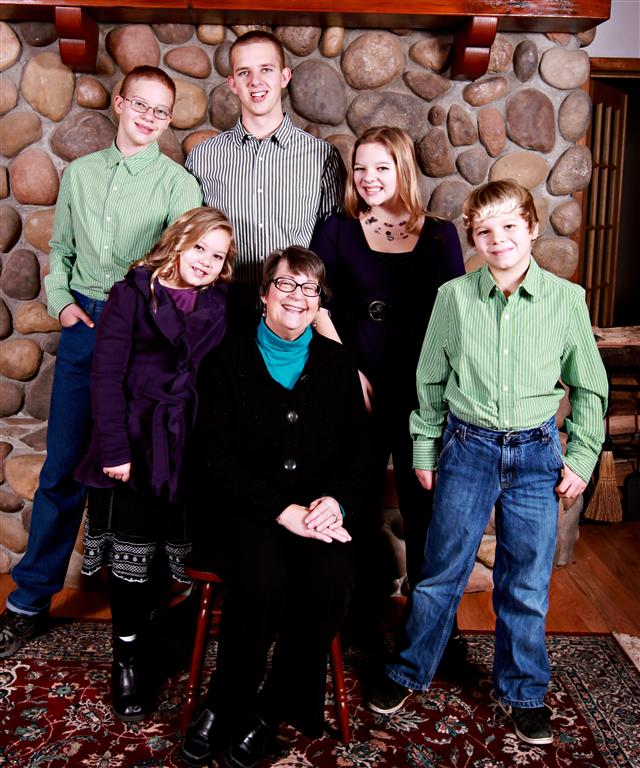It always strikes terror into my soul, when I hear that my wife is reading a new parenting book.
“Oh, great,” I think. “Another picture-perfect family, another book full of spiritual wisdom, another chance to show me up as a loser Dad.”
The people in these books always seem so together. Their parenting philosophies are congruent and based in scripture. Their illustrations are clever and informative. The Dads in these parenting books, especially, seem to be poweful men of quiet wisdom and grace. They always seem to know what to say, moving easily through family crises without ruffled feathers. They don’t get angry or irrational — they always seem to be in control without having to flaunt it.
I guess it makes sense. Parenting books aren’t best-sellers, in the most optimum conditions — most people don’t like to be told how to parent in the first place. So perhaps only the best and the brightest are published. Still, just once, I’d like to read a parenting book by someone a bit more, well, ‘normal’. Something that had an introduction a bit like this:
“My wife seems to think that we should write a parenting book, because we’ve raised a bunch of kids and they’re all still alive, and none of them are in therapy. To tell you the truth, we pretty much just made it all up as we went along … “
I’ve decided (by the process of elimination) not to be a ‘together’ sort of Dad, but rather to pride myself on my ‘Renaissance Parenting’ technique. I borrow a little here, adapt a little there, and patch it all together into a half-baked system that mostly works, even if it isn’t very coherent, from a philosophical perspective.
A while back, Kathy read Keeping Our Children’s Hearts by Steven and Teri Maxwell (Titus2.com) and borrowed a few ideas from them.
“The Maxwells meet with each of their kids once a week,” Kathy tells me, “to catch up with them and to have an opportunity to speak with each of them one-on-one. We should do that, too.”
And so, in January, we started meeting with each of our kids on Sunday afternoons.
We borrow from all kinds of people. Early in our marriage, we were deeply influenced by Gary and Anne Marie Ezzo’s Growing Kids God’s Way curriculum, which really helped us define our parenting strategy. Sure, Ezzo is a bit out of fashion these days, and if you search the internet (I don’t recommend it) you’ll find all kinds of Ezzo-bashers, but it is actually a great foundational program, which I strongly recommend.
We’ve been influenced by Michael Pearl, and Dee Duke (we strongly recommend this sermon series), the Tripp brothers (Tedd and Paul). and a host of others. Sometimes we’ll love an idea, but not be able to implement it. Other times we’ll latch onto a philosophy, and apply it in our own unique (quirky?) way.
There doesn’t seem to be any way to stop Kathy from reading these parenting books, though.
“The Maxwells have a Family Values Statement in which they list the things that are important to them as a family. We should do that, too.”
And so, I’m working on an adaptation of their Family Values Statement.

Rachel poses for a potential Keeping/Shepherding Our Child's Heart reprint, in case the Maxwells or the Tripps call us for a collaborative effort.
One thing sustains me, though. I have a dream. One day, I’ll be attending a Parenting Conference, and I’ll take refuge, head spinning from hours of parenting wisdom, in the men’s room. There, I’ll encounter the keynote speaker, who will (as luck has it) be out of toilet paper, trapped in a stall, with only seconds before he has to go on stage. That’s when I will enact my revenge: before I give him the toilet paper he needs, I’ll force him to admit that his wife actually wrote the parenting book, and that she used an imaginary stunt Dad for all the witty illustrations and wise proverbs.
“OK, OK, I admit it,” he’ll growl. “My wife made the whole thing up. I’m just an average guy with an anger problem — I never said any of those clever things. Now give me the toilet paper!”


WOW I like that picture of us!
Yeah! I like it too!
You’ll never have to read a parenting book written by us, I can tell you that! I think we often resorted to the bottom-line kind of parenting: Are they fed & clothed & safe? Do they know we love them? Did we confess to each other and forgive our sins against each other? Did we communicate to them somehow that God loves them and desires their love? If so, then we’d call it a good day.
Sounds like a good day, indeed.
Hi i’m Heather! I have a question for you! Please email me
haha! Rachel and her heart gloves! soooooo funny!
Can’t wait until AWANA tonight
Me too I love AWANA it is awesome!!!!!:)
this website is awesome:P i want it to be summer!
oh and miss you Sarah!
Can’t wait until tomorrow’s blog!
Bravo! Great post!